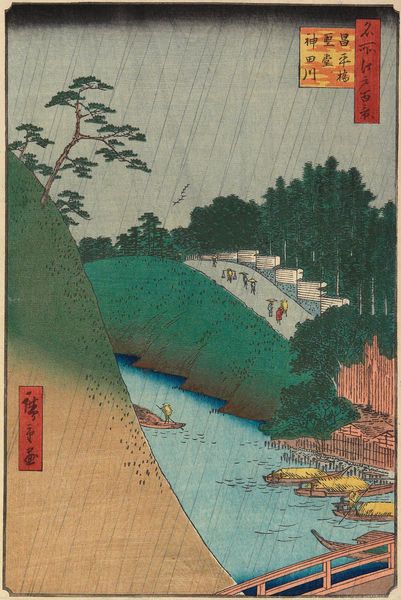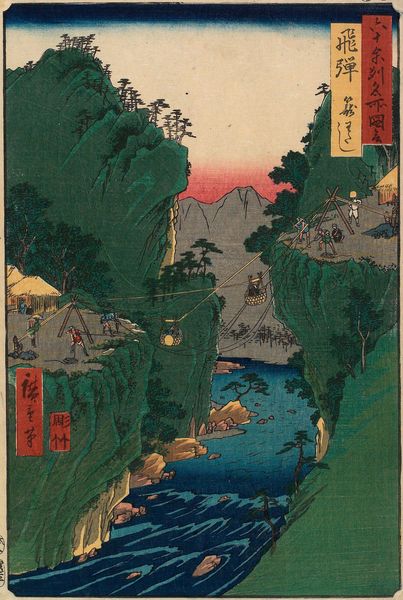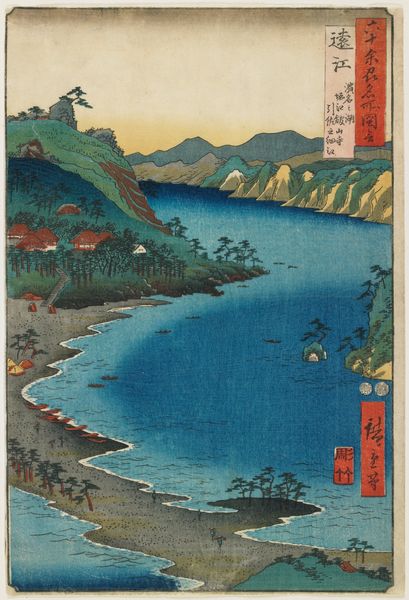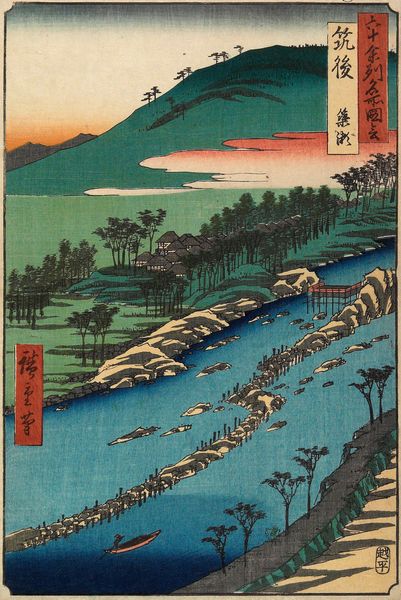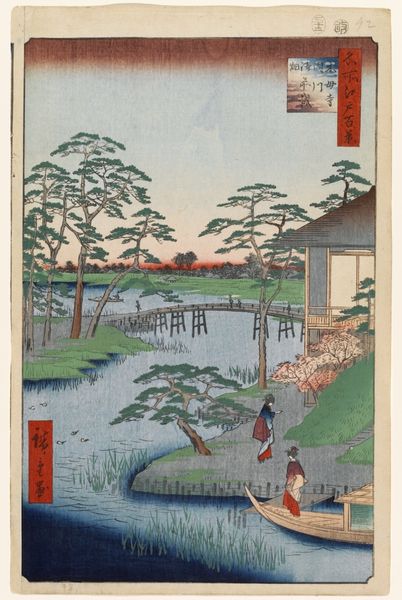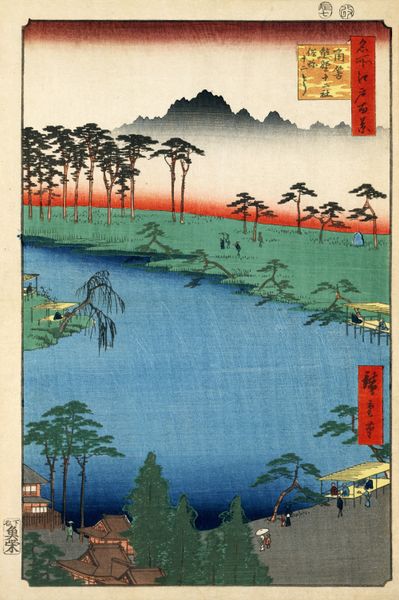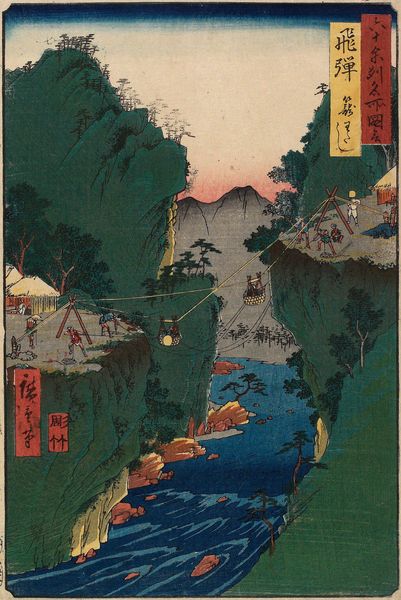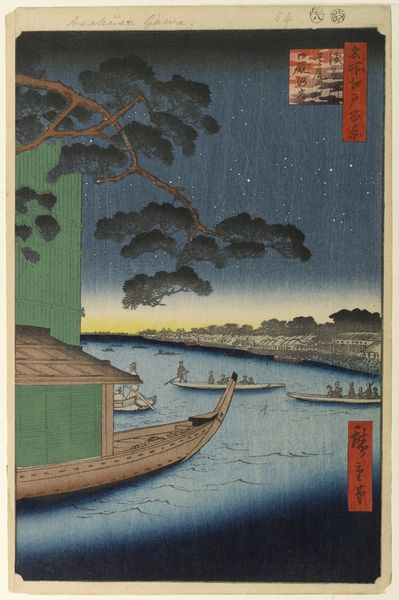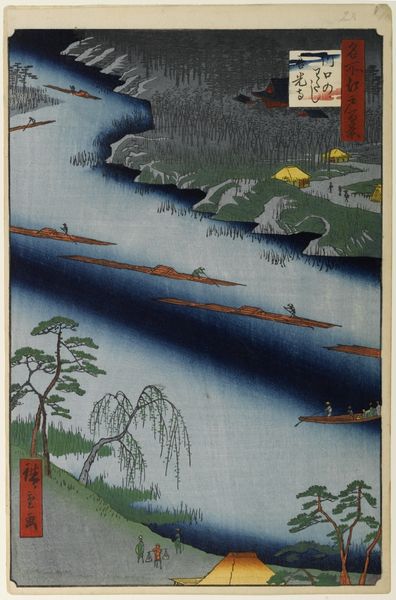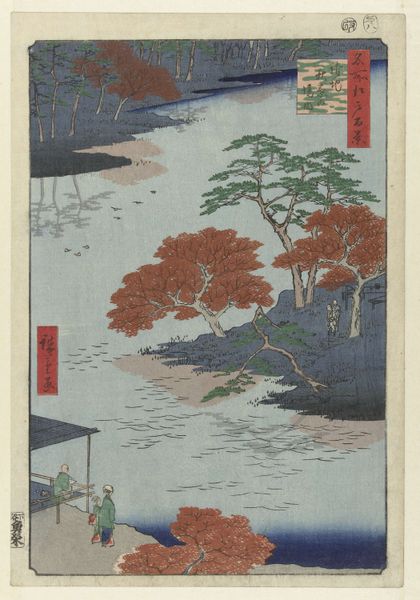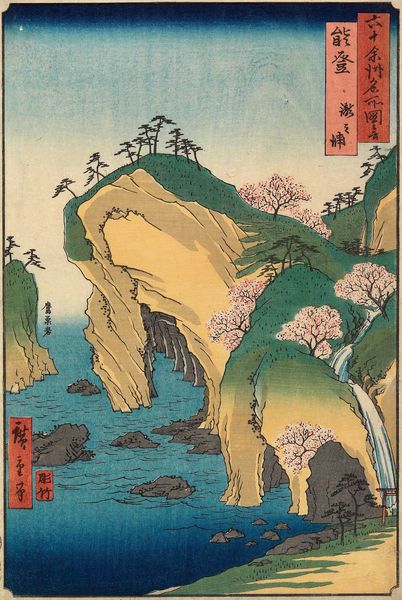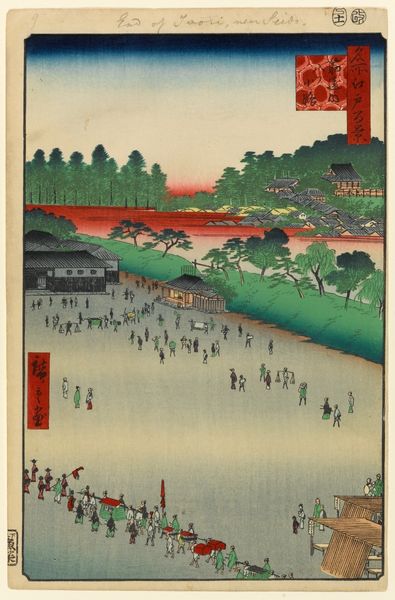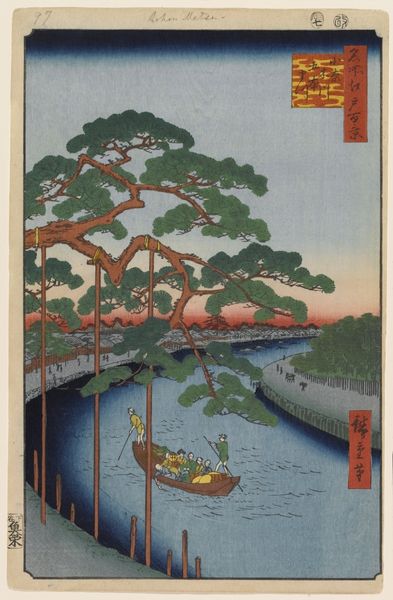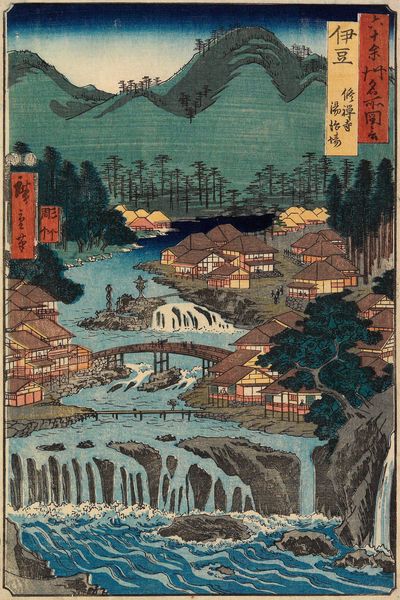
#
water colours
#
egg art
#
handmade artwork painting
#
coloured pencil
#
coffee painting
#
watercolour bleed
#
watercolour illustration
#
botanical art
#
watercolor
#
warm toned green
Copyright: Public domain
Editor: Here we have Hiroshige's "47 (46) Seidō and Kanda River from Shōhei Bridge," created in 1857. It's a compelling woodblock print. What strikes me is the rain, it almost feels tangible. What's your perspective on this work? Curator: The first thing that grabs me is the process itself. Woodblock printing involved a collaborative labor. Think of the carvers, the printers, and the publisher all contributing to the final product. It wasn’t just Hiroshige; it’s about understanding that chain of production. Editor: So, you're saying we need to look beyond just the artist’s intention? Curator: Precisely. Consider the materials – the paper, the inks. Where did they come from? How did the availability and cost of these materials influence the artistic choices made? Were certain colors cheaper, easier to obtain? What impact might that have on the distribution, affordability, and therefore the accessibility of these prints to the common people? Editor: That’s a really different way of thinking about it. I hadn’t considered the economics of art-making at the time. Curator: These prints were commodities, circulating within a complex economy. Examining the production and consumption of these prints reveals much about Edo-period society. Do you think that the subject of landscape influenced their production value or desirability at that time? Editor: Hmm, I suppose urban residents were probably nostalgic for natural settings. It makes you wonder about the labor involved in the scenes portrayed too—those figures on the boats... Curator: Exactly. Thinking about who is represented, who is doing the work, connects the print to larger social realities. These images were made by many hands, and they depicted a world where labor was a daily reality. Editor: I see the connections now. Looking at the print as part of a larger material and economic system makes me see so much more. Thanks! Curator: My pleasure. It’s about understanding the print as an object deeply embedded in its time.
Comments
No comments
Be the first to comment and join the conversation on the ultimate creative platform.
